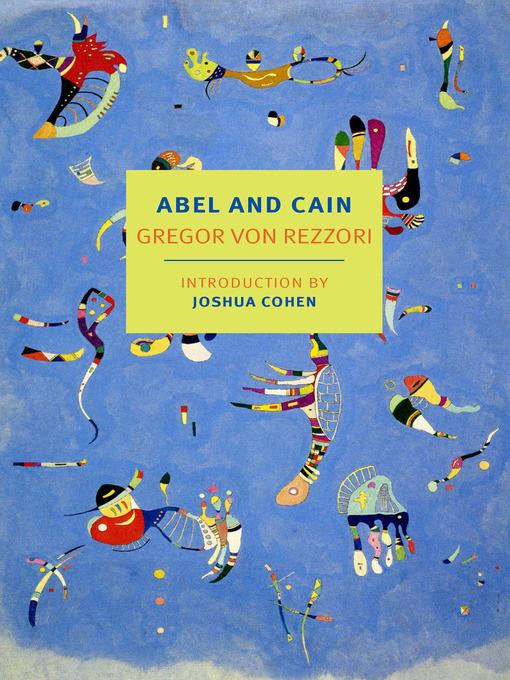
Abel and Cain
کتاب های مرتبط
- اطلاعات
- نقد و بررسی
- دیدگاه کاربران
نقد و بررسی

January 1, 2019
Von Rezzori's vast roman à clef The Death of My Brother Abel, first published in English in 1985, is given extra heft with the addition of a couple of hundred pages of posthumous postscript--prequel, that is.In the first iteration of his novel, von Rezzori opens with a provocative scene in which a streetwalker tells the secret for dealing with the inevitable what's-a-nice-girl-like-you question: "I've got six different versions in stock," she says, "all of them very believable." So it is with all the players in this often perplexing book, to which has been added Cain: The Last Manuscript, published in German in 2001: The voices shift among the protagonist, the author Aristide Subics, and his editor, Schwab, whose name is similar enough to provoke suspicion; from time to time other characters take over. Subics is working away over a mountain of notes on a story of his own, recalling the challenge of an American agent: "Okay then, tell me a story, if possible in three short sentences." That's impossible, of course: Just getting to a short period of Subics' childhood in a part of Romania later swallowed up by the Soviet Union takes pages to tease out, and then there's the rise of Hitler, the Anschluss, the war, and all that comes after, from the "denunciations, self-abasement before the victors, begging for cigarettes and chocolate, turning tricks for nylons, and so on" of the Occupation to the economic miracle of the 1960s. Throughout, von Rezzori's characters are ironic and elusive: if Cain killed Abel, then brother after brother has had no trouble killing in the countless generations since, and for all the usual reasons: "I mean, everyone for his ideals, of course. For the Folk and Fatherland. For his traditions." Von Rezzori's book is episodic, with stories sometimes breaking off in the middle, always with an odd poetry ("and I watched the grand spectacle purely through indolently squinting eyes") that finds beauty even in the most terrible destruction.A challenging consideration of a murderous history by a knowing witness.
COPYRIGHT(2019) Kirkus Reviews, ALL RIGHTS RESERVED.

February 18, 2019
This omnibus volume, which collects a revised translation of The Death of My Brother Abel and the first translation of its companion work, Cain (first published in German in 1976 and 2001, respectively), is a masterpiece of excess. The Death of My Brother Abel takes as its subject its unnamed narrator’s incomplete novel, or more likely, that incomplete novel is Rezzori’s novel itself. For 19 years he has been writing an unfinishable autobiographical epic: “its subject was a continent: the period of a lifetime.” Over hundreds of pages the bitter and cosmopolitan narrator recounts his many escapades with Schwab, another writer, “his brother or opponent” in Paris; unfurls stories of his time as an screenwriter in post-WWII Berlin; and intersperses Proustian reminiscences of his childhood as a “fatherless orphan-boy” in Vienna, before “the postwar Ice Age years.” In Cain, the narrator gains a name, Aristides Subicz, but its plot largely rehashes the characters and themes of the first work with little added. While not entirely devoid of the sort of casual sexism and racism best left in the past, the narrator’s wit and wickedness—as well as his audacity in attempting to write a “book that bears witness to man in the second half of the twentieth century”—elevates this work. This volume resurrects the vanished high culture of Mann and Musil’s Europe while also tackling the horrors of the war and its aftermath. These new translations breathe life into von Rezzori’s ambitious and exhausting epic.

























دیدگاه کاربران